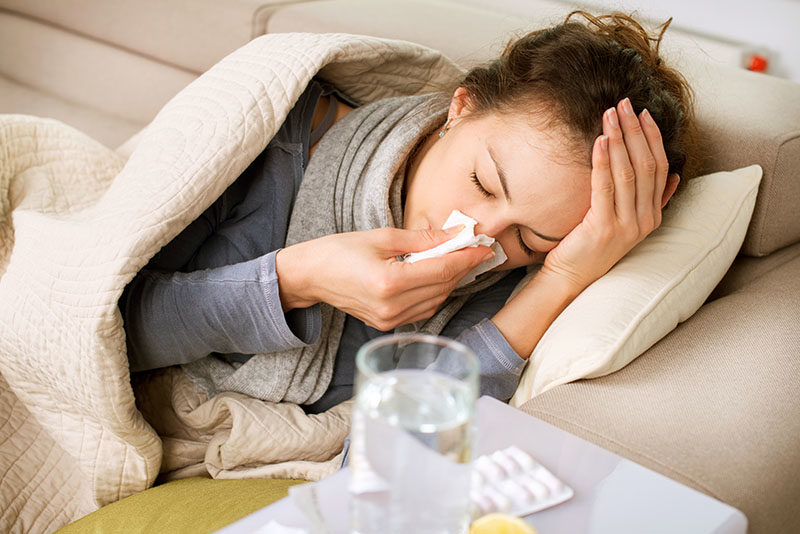The area’s health care partners are taking a collaborative approach in communicating care options available to our community.
For those who aren’t feeling well, contacting your primary care physician can be an option. If you can’t get in to see your doctor, or don’t have one, Greene County has several options for care.
Telemedicine is a great option to stay home and avoid potentially exposing others. This allows patients to check in with their care provider virtually, rather than having to travel or sit in a waiting room.
Convenient care, urgent care and retail clinic locations are good options for people experiencing the beginning stages of flu or other respiratory illnesses with symptoms such as fever, cough, sore throat, runny or stuffy nose, muscle or body aches, headaches or tiredness.
The latest flu numbers and links to local resources are available at health.springfieldmo.gov/flu.
If you are sick, stay home for at least 24 hours after your fever is gone, without using fever-reducing medicine. Cover your nose and mouth with a tissue when you cough or sneeze and try to avoid contact with others.
When to go to the emergency room
There are scenarios where flu can progress to an illness that requires a visit to the Emergency Room. The Centers for Disease Control and Prevention lists emergency warning signs for flu:
In children:
- Fast breathing or trouble breathing
- Bluish skin color
- Not drinking enough fluids
- Not waking up or not interacting
- Being so irritable that the child does not want to be held
- Flu-like symptoms improve but then return with fever and worse cough
- Fever with a rash.
In addition to the signs above, get medical help right away for any infant who has any of these signs:
- Being unable to eat
- Has trouble breathing
- Has no tears when crying
- Significantly fewer wet diapers than normal.
In adults:
- Difficulty breathing or shortness of breath
- Pain or pressure in the chest or abdomen
- Sudden dizziness
- Confusion
- Severe or persistent vomiting
- Flu-like symptoms that improve but then return with fever and worse cough.
Anyone experiencing these symptoms should visit an emergency room.
For those who are feeling well and want to prevent getting sick:
Take time to get a flu vaccine – even if it proves to be less effective this year, some protection is better than none and often leads to less severe illness if you do get the flu.
A few reminders about getting vaccinated:
- Everyone over the age of 6 months is recommended to be vaccinated
- Even if you were vaccinated last year, it is important to get vaccinated again this year to protect against changing flu viruses
- Flu vaccine is safe. Every year the Centers for Disease Control and Prevention and the Food and Drug Administration work closely with vaccine manufacturers to ensure the highest level of safety standards for flu vaccines.
In addition to getting vaccinated, you can also help prevent the spread of many viruses by practicing proven disease prevention methods. This includes:
- Washing your hands often with soap and water. If soap and water are not available, use an alcohol-based hand sanitizer and then wash your hands with soap as soon as you are able.
- Avoid touching your eyes, nose and mouth. This is how germs are spread.


